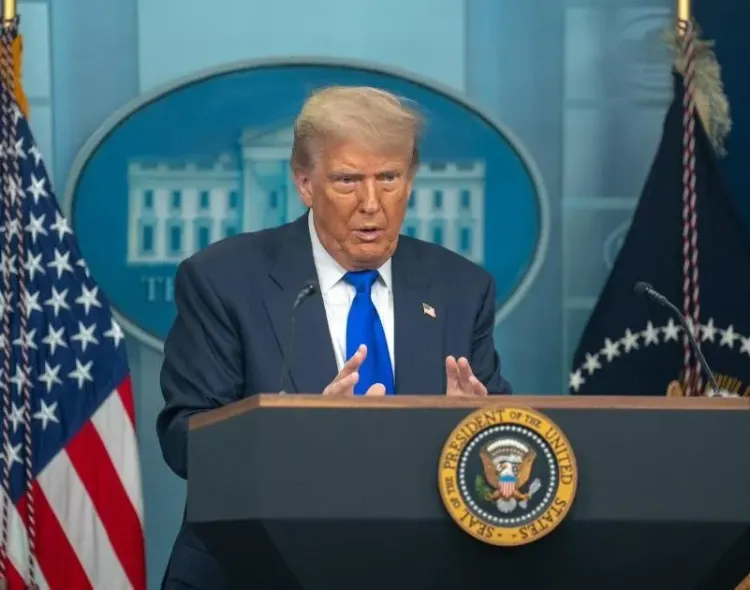Did the US Senate Just Pass Trump's Landmark Mega-Bill?

Synopsis
Key Takeaways
- Senate passes Trump’s One Big Beautiful Bill by 51-50.
- Vice President JD Vance cast the tie-breaking vote.
- Bill extends tax cuts and funds military and border security.
- Democrats oppose due to potential cuts to essential programs.
- Concerns raised about adding to the national debt.
Washington, July 2 (NationPress) The Senate, under GOP leadership, has successfully passed US President Donald Trump's One Big Beautiful Bill, marking a significant step towards Trump's objective of having the legislation finalized and signed by the end of this week.
The comprehensive bill secured a narrow victory with a 51 to 50 vote, with US Vice President JD Vance casting the crucial tie-breaking vote. Only three Republican senators, Susan Collins, Thom Tillis, and Rand Paul, opposed the measure.
This legislation is viewed as the GOP's most substantial achievement leading up to the upcoming midterm elections, where the party risks losing its slim House majority, as reported by the Xinhua news agency.
The bill extends the 2017 Tax Cuts and Jobs Act, reduces taxes on tips, and allocates new funds for both the military and border security.
“Today marks a historic milestone... and we are thrilled to be part of a movement that aims to make America stronger, safer, and more prosperous,” stated Senate Majority Leader John Thune following the Senate's approval.
Nevertheless, a significant challenge remains, as the bill still requires approval from the House of Representatives, which may take a vote as soon as Wednesday.
“This is a fantastic bill. It includes provisions for everyone, and I believe it will fare better in the House than it did in the Senate,” Trump commented.
Conversely, Democrats have expressed strong opposition to the mega-bill, which they believe funds initiatives that contrast sharply with their agenda.
Critics from the Democratic Party have condemned the tax cuts as disproportionate benefits for the wealthy, while Republicans argue that these cuts will support the middle class.
Democrats have also raised concerns about reductions to vital programs such as Medicaid and food stamps.
Additionally, there are fears that the bill will contribute trillions of dollars to the increasing national debt.
A nonpartisan analysis by the Congressional Budget Office (CBO) indicated that modifications made by Trump in the Senate version would add trillions to the already substantial national debt and lead to significant losses in health care coverage.
The CBO predicts that the bill could increase the national debt by $2.4 trillion over the next decade while escalating the deficit by approximately $3.3 trillion between 2025 and 2034.
The analysis also anticipates that the bill could result in 11.8 million additional Americans losing their health insurance by 2034, posing significant obstacles for the bill's passage in the House before Trump's deadline on July 4.









